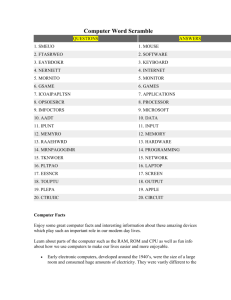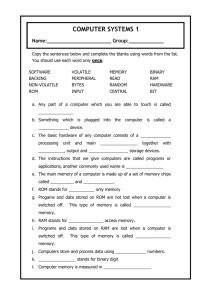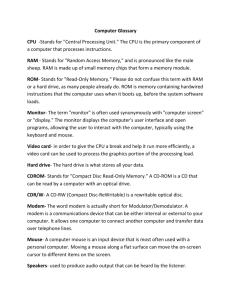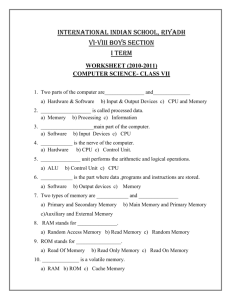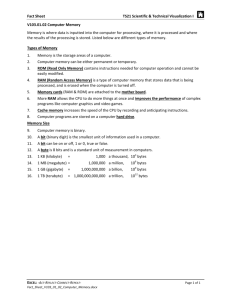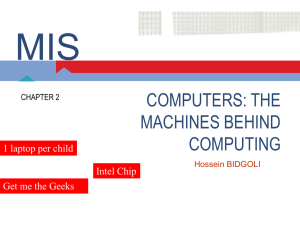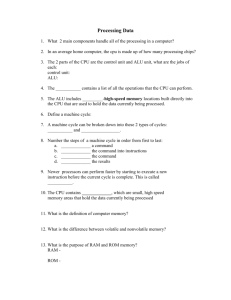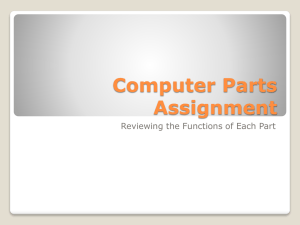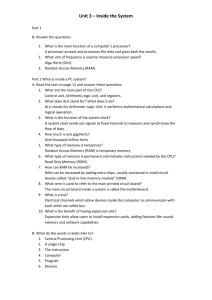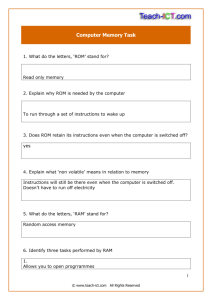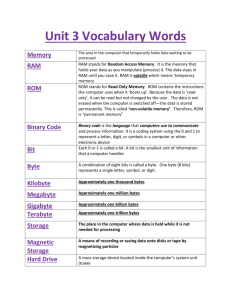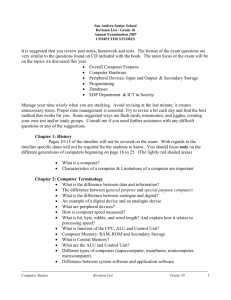Model Paper “Computer Hardware Fundamentals” For Diploma in
advertisement
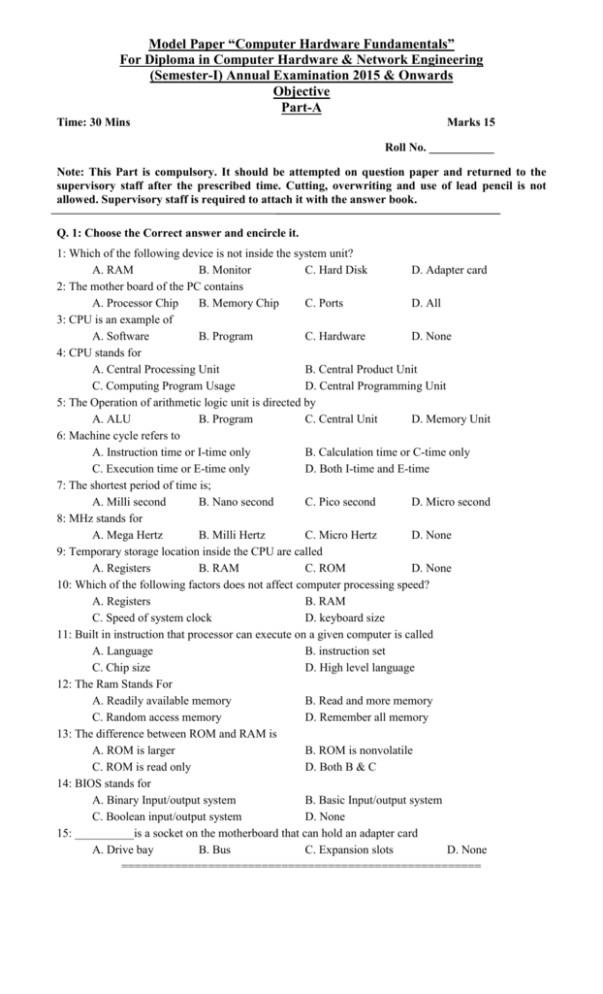
Model Paper “Computer Hardware Fundamentals” For Diploma in Computer Hardware & Network Engineering (Semester-I) Annual Examination 2015 & Onwards Objective Part-A Time: 30 Mins Marks 15 Roll No. ___________ Note: This Part is compulsory. It should be attempted on question paper and returned to the supervisory staff after the prescribed time. Cutting, overwriting and use of lead pencil is not allowed. Supervisory staff is required to attach it with the answer book. Q. 1: Choose the Correct answer and encircle it. 1: Which of the following device is not inside the system unit? A. RAM B. Monitor C. Hard Disk D. Adapter card 2: The mother board of the PC contains A. Processor Chip B. Memory Chip C. Ports D. All 3: CPU is an example of A. Software B. Program C. Hardware D. None 4: CPU stands for A. Central Processing Unit B. Central Product Unit C. Computing Program Usage D. Central Programming Unit 5: The Operation of arithmetic logic unit is directed by A. ALU B. Program C. Central Unit D. Memory Unit 6: Machine cycle refers to A. Instruction time or I-time only B. Calculation time or C-time only C. Execution time or E-time only D. Both I-time and E-time 7: The shortest period of time is; A. Milli second B. Nano second C. Pico second D. Micro second 8: MHz stands for A. Mega Hertz B. Milli Hertz C. Micro Hertz D. None 9: Temporary storage location inside the CPU are called A. Registers B. RAM C. ROM D. None 10: Which of the following factors does not affect computer processing speed? A. Registers B. RAM C. Speed of system clock D. keyboard size 11: Built in instruction that processor can execute on a given computer is called A. Language B. instruction set C. Chip size D. High level language 12: The Ram Stands For A. Readily available memory B. Read and more memory C. Random access memory D. Remember all memory 13: The difference between ROM and RAM is A. ROM is larger B. ROM is nonvolatile C. ROM is read only D. Both B & C 14: BIOS stands for A. Binary Input/output system B. Basic Input/output system C. Boolean input/output system D. None 15: __________is a socket on the motherboard that can hold an adapter card A. Drive bay B. Bus C. Expansion slots D. None ====================================================== Model Paper “Computer Hardware Fundamentals” For Diploma in Computer Hardware & Network Engineering (Semester-I) Annual Examination 2015 & Onwards Subjective Part-B Time: 2:30 Hours Marks: 60 SECTION-I Q. 1 Write the short answer to any Eighteen (18) from the following questions. 18 x 2 = 36 1- What is computer hardware? 2- Define any two types of keyboard. 3- What is keyboard connector? 4- Define any four operating principles of mouse? 5- Define optical mouse? 6- What is regulation of power supply? 7- Define switch mode power supply? 8- How a power good signal is produced? 9- Define molex connector? 10- What is linear regulator? 11- Define voltage checker? 12- Define system board? 13- Write any four characteristics of CPU? 14- Differentiate between bus and slots? 15- Indentify common video, I/O types 16- What is processor? 17- Define MMX technology? 18- What are built in controllers? 19- Define BIOS chips? 20- Define post process? 21- What is RAM? 22- Define virtual memory? 23- Define SIMM? 24- What is modem? 25- Define floppy? 26- Differentiate between CRI & LCD? 27- Define impact printer? SECTION-II Note: attempt any three (3) questions 3x8=24 Q. 2: What is mother Board? Write down its components, draw block diagram Q. 3: Differentiate between switch mode and transformer based power supply Q. 4: What is memory? Explain different types of RAM Q. 5: Explain laser printer, its working, advantages & disadvantages. Q. 6: Write note on the following of any two; a) Resolution b) DVD c) Expansion cards ===================================================================
